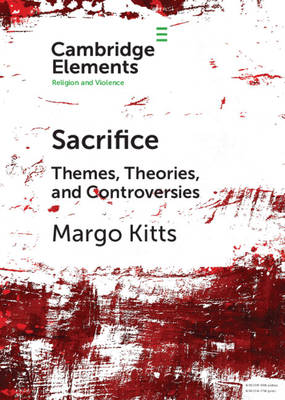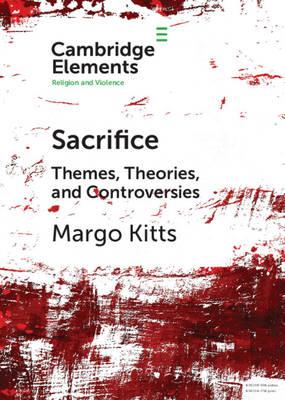
- Afhalen na 1 uur in een winkel met voorraad
- Gratis thuislevering in België vanaf € 30
- Ruim aanbod met 7 miljoen producten
- Afhalen na 1 uur in een winkel met voorraad
- Gratis thuislevering in België vanaf € 30
- Ruim aanbod met 7 miljoen producten
Zoeken
Omschrijving
After over a century of grand theorizing about the universal dimensions to the practice of ritual sacrifice, scholars now question the analytical utility of the notion writ large. The word 'sacrifice' (Latin sacrificium) itself frequently is broken down into its Latin roots, sacer, sacred, and facere, to do or to make - to do or to make sacred - which is a huge category and also vague. Presuming it is people and places that are made sacred, we must question the dynamics. Does sacrifice 'make sacred' by summoning the presence of gods or ancestors? By offering gifts to them? By dining with them? By restoring or establishing cosmic order? By atoning for personal or collective sins? By rectifying social disequilibrium through scapegoating? By inducing an existential epiphany about life and death? While this short Element cannot cover all complexities and practices, it does treat critically some prominent themes, theories, and controversies concerning sacrifice, from ancient to present times.
Specificaties
Betrokkenen
- Auteur(s):
- Uitgeverij:
Inhoud
- Aantal bladzijden:
- 75
- Taal:
- Engels
- Reeks:
Eigenschappen
- Productcode (EAN):
- 9781108995511
- Verschijningsdatum:
- 28/07/2022
- Uitvoering:
- Paperback
- Formaat:
- Trade paperback (VS)
- Afmetingen:
- 127 mm x 178 mm
- Gewicht:
- 95 g

Alleen bij Standaard Boekhandel
+ 63 punten op je klantenkaart van Standaard Boekhandel
Beoordelingen
We publiceren alleen reviews die voldoen aan de voorwaarden voor reviews. Bekijk onze voorwaarden voor reviews.











